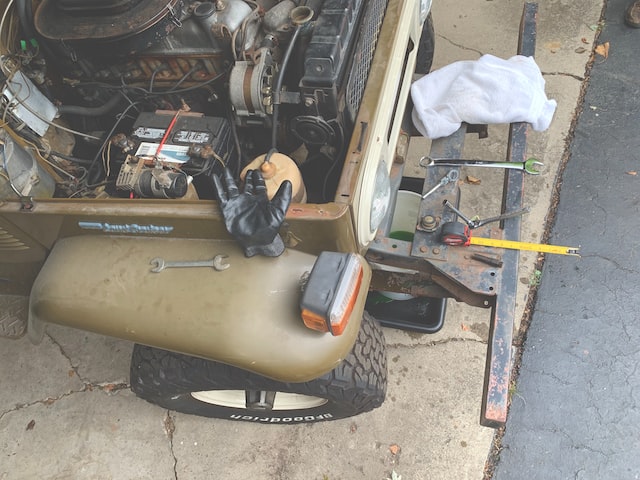Contents
- 1 Introduction
- 2 Get to know your car.
- 3 Keep up with the maintenance.
- 4 Drive the speed limit.
- 5 Get your car inspected regularly.
- 6 Don’t forget about regular maintenance services like oil changes and tire rotations.
- 7 Keep the interior clean and dry — especially during winter months.
- 8 Go easy on the brakes. Use only as much pressure as necessary to stop safely and avoid overheating them by using excessive force during stopping periods (such as at stoplights).
- 9 Conclusion
Introduction
If you want to extend the life of your vehicle, it’s important to keep up with regular maintenance and make sure that the engine is operating at optimal levels. There are a few key things that all drivers can do to preserve the longevity of their cars and help them last longer.
Get to know your car.
- Get to know your car. Know the maintenance history of your vehicle, and be sure that all recommended services have been performed on time.
- Do a visual inspection of the car to see if there are any problems. Look for signs of rust or damage in areas that can’t be seen from above such as undercarriage, around doors and windows, etc…Check for leaks under the hood (oil and coolant) as well as exhaust system leaks.* Check tire pressure with an accurate gauge–you can buy one at an auto parts store if yours doesn’t work properly! And don’t forget about brakes: If you hear squeaking when you brake or feel them dragging when stopping suddenly then it’s probably time for new brake pads/shoes.* Check battery voltage with a voltmeter–it should read 12 volts when engine is not running but drop down below 10 volts while driving due to electrical load placed on battery by headlights/radio etc…if not replace battery soon before damage occurs which could lead up needing major repair later down line costing thousands$$$ instead just replacing now which would cost less than $100 depending upon type needed
Keep up with the maintenance.
It’s important to keep up with your car’s maintenance. Regularly check your tires, brakes, fluids and belts. Have your mechanic check the air pressure in your tires and change them if necessary. Keep the car’s oil changed regularly (every 3 months or 5,000 miles). Replace worn brake pads and rotors when necessary as well as old or damaged tires if they have less than 3/32 inch tread depth left on them.
Drive the speed limit.
The speed limit is the maximum speed allowed in a particular area. It’s set by government officials, who usually base it off of research conducted by scientists and engineers to determine what is safe for drivers to maintain within a given area.
The reason for this is simple: speeding increases fuel consumption, which in turn increases emissions–and we all know how important our environment is! Speeding also makes driving more dangerous because you have less time to react when something unexpected happens on the road ahead of you or behind you (like another driver making a sudden move). Finally, speeding tickets are expensive–so if you want to save money on car maintenance costs later down the line, then avoid breaking the law now!
Get your car inspected regularly.
If you want your car to last, get it inspected regularly. If possible, get one done every six months or so. This will help ensure that repairs are made before they become an issue and prevent any big problems from happening later on down the road.
If there are any issues with your vehicle after an inspection–like leaks or brakes–it’s better to deal with them sooner rather than later as well: if there is something wrong with your car’s engine or transmission system, for example, this could lead to major problems down the line (and even cause serious accidents). Inspections are also a good time to ask questions about maintenance issues that may arise later on in life with your vehicle; getting answers now will save both time and money over time!
Don’t forget about regular maintenance services like oil changes and tire rotations.
Regular maintenance services like oil changes and tire rotations are essential to keeping your car running longer. If you don’t take care of these things, it can lead to more expensive repairs down the road.
Regular maintenance will also help keep your car running at peak performance levels and improve gas mileage, making it safer for you on the road as well as saving money on gas costs over time.
Keep the interior clean and dry — especially during winter months.
Keeping the interior clean and dry is important for the life of your car. You can use a microfiber cloth to wipe down surfaces, but avoid paper towels or newspaper as they may scratch the interior. Also, don’t leave food or drinks in your car — especially during winter months — because they will attract bugs and mold that can damage your vehicle’s interior.
Finally, don’t leave pets in your vehicle: even if it’s just for five minutes while you run into a store or grab lunch! Pets have sensitive respiratory systems that are easily irritated by carbon dioxide buildup inside closed spaces like cars; even if it seems like nothing could happen within such a short period of time (and even if it does not seem hot enough outside for them to suffer heatstroke), leaving animals inside vehicles during hot weather can still be dangerous because their bodies cannot regulate temperature like humans do so quickly become dehydrated from excessive panting due to stress caused by high humidity levels within closed spaces such as cars
Go easy on the brakes. Use only as much pressure as necessary to stop safely and avoid overheating them by using excessive force during stopping periods (such as at stoplights).
- Brakes are a major component of safe driving. You should inspect them regularly, and replace them before they wear out, become damaged or leak.
- When you press the brake pedal, it applies pressure to the brake pads and rotors. The friction between these components causes your car’s wheels to stop rotating and slow down your vehicle.
- A good rule of thumb is to change your brakes at least every 30-40 thousand miles (50-65 km) or every two years — whichever comes first — depending on how much you drive each year and what type of driving conditions exist where you live/drive most often (city vs highway).
Conclusion
If you follow these tips, your car will last longer and run better. The best thing about caring for your vehicle is that it can save you money in the long run. For example, if you don’t get regular inspections or maintenance services done on time then you might have to pay more for repairs later down the road when things go wrong due to neglecting them earlier!

